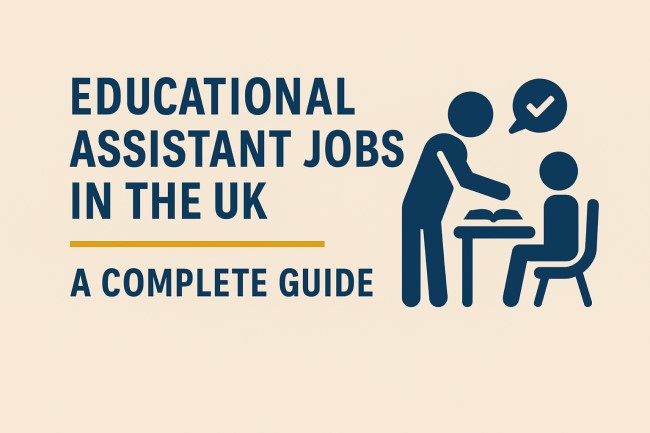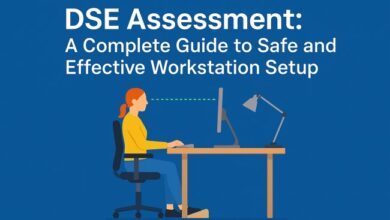Educational Assistant Jobs in the UK: A Complete Guide

Educational assistant jobs in the UK are an essential part of the school system, providing vital support to teachers and students. These roles are designed to ensure that learning environments run smoothly, children receive the help they need, and teachers are free to focus on delivering lessons. Whether you are considering this as a career path or want to understand more about what the role involves, educational assistant jobs open up rewarding opportunities to contribute to education while building your professional skills.
Understanding the Role of an Educational Assistant
Supporting Teachers in the Classroom
The main duty of an educational assistant is to support teachers with classroom activities. This includes preparing learning materials, setting up resources, and ensuring that lessons run without unnecessary interruptions. They often assist with marking simple assignments, managing attendance, and helping children who need extra guidance.
Helping Students Learn
Educational assistants play a direct role in helping students succeed. They may work with small groups, guide individuals who struggle with certain subjects, or provide tailored support to children with special educational needs (SEN). Patience, empathy, and excellent communication skills are vital here, as many children require encouragement and reassurance to gain confidence in their learning.
Managing Classroom Behaviour
Another crucial responsibility is helping to maintain discipline. Educational assistants often support the teacher by managing student behaviour, ensuring that children remain focused, respectful, and engaged. This not only benefits the teacher but also creates a calm environment where learning can flourish.
Qualifications and Skills Required
Academic Requirements
To apply for most educational assistant jobs, schools usually ask for GCSEs in English and Mathematics at grades 9–4 (or equivalent). For more advanced responsibilities, like working as a higher-level teaching assistant, you may need additional qualifications such as a Level 2 or Level 3 Certificate in Supporting Teaching and Learning in Schools.
Essential Skills
-
Communication skills: Clear and supportive communication with both teachers and students.
-
Patience and empathy: The ability to work with children who may have varying needs and learning speeds.
-
Organisation: Managing resources, time, and daily tasks effectively.
-
Teamwork: Working closely with teachers, parents, and other assistants to support children’s education.
Background Checks
Because educational assistants work with children, all candidates must pass a Disclosure and Barring Service (DBS) check. This ensures safety and trustworthiness in the school environment.
Salary and Benefits
Average Salary Range
The salary for educational assistants varies across the UK depending on location, experience, and specialisation. Entry-level roles often start between £17,000 and £20,000 per year. With experience and additional responsibilities, such as supporting SEN students or working as a Higher-Level Teaching Assistant (HLTA), salaries can increase to around £25,000–£29,000 annually.
Additional Benefits
Many educational assistants enjoy the benefit of working term-time only, which means they have school holidays off. This makes the role attractive for parents or those looking for a good work-life balance. Some schools also provide training opportunities, giving assistants the chance to progress in their careers.
Types of Educational Assistant Jobs
General Classroom Assistant
These assistants support the teacher with day-to-day classroom activities, ensuring that lessons flow smoothly. They help all students as needed and often focus on group work.
Special Educational Needs (SEN) Assistant
SEN assistants provide dedicated support to children with learning difficulties, disabilities, or behavioural challenges. This role demands extra patience and often requires specialised training, but it can also be the most rewarding.
Higher-Level Teaching Assistant (HLTA)
HLTAs take on greater responsibility, sometimes even leading classes under the teacher’s guidance. To qualify for this position, assistants often need further training and proven experience.
Early Years Assistant
These assistants work with nursery or reception-aged children, focusing on building early social, emotional, and educational skills. The role involves plenty of hands-on interaction and creativity.
Working Hours and Conditions
Educational assistant jobs are often part-time or term-time contracts. The typical workday aligns with school hours, usually starting around 8:30 am and finishing by 3:30 pm. Some assistants may also help with after-school clubs or additional learning support.
The job can be demanding, especially when working with SEN children or managing challenging behaviour. However, it is equally rewarding, as assistants often see the direct impact of their work on children’s growth and confidence.
Challenges in the Role
Behavioural Difficulties
Some students require extra attention, which can be emotionally demanding. Assistants must be resilient and consistent in applying behaviour management strategies.
Limited Career Progression Without Training
While the role is rewarding, moving into higher positions such as HLTA or teaching requires additional qualifications. Many schools encourage assistants to pursue further study, but it requires time and effort.
Pay Differences Across Regions
Salaries can differ significantly depending on the local authority and the type of school. Urban schools, especially in London, may offer higher pay, while smaller towns or rural areas may pay less.
Career Progression Opportunities
Becoming a Higher-Level Teaching Assistant
With experience and training, educational assistants can advance to HLTA roles. This provides more responsibility, higher pay, and opportunities to lead lessons.
Moving into Teaching
Some educational assistants use the role as a stepping stone to become qualified teachers. By gaining classroom experience, they build the foundation to pursue teacher training programmes.
Specialisation in SEN
Assistants passionate about working with special educational needs can pursue specialised training, making them highly valuable to schools and increasing career opportunities.
Why Choose Educational Assistant Jobs
Educational assistant jobs are more than just a career choice—they are an opportunity to make a lasting difference in children’s lives. These roles are ideal for individuals who enjoy helping others, thrive in collaborative environments, and want to contribute positively to education.
The balance of work-life, especially with term-time contracts, makes it appealing for many people, including parents and those looking for stability. Most importantly, the sense of reward and fulfilment from supporting children in their learning journey is unmatched.
Conclusion
Educational assistant jobs in the UK are vital roles within the education system, offering both challenges and rewards. They provide opportunities to support teachers, guide students, and gain experience in an environment that shapes the future. With the right skills, patience, and passion, anyone entering this field can build a meaningful career. Whether you aspire to progress into teaching or simply enjoy working with children, educational assistant jobs are a fulfilling and impactful career path.



